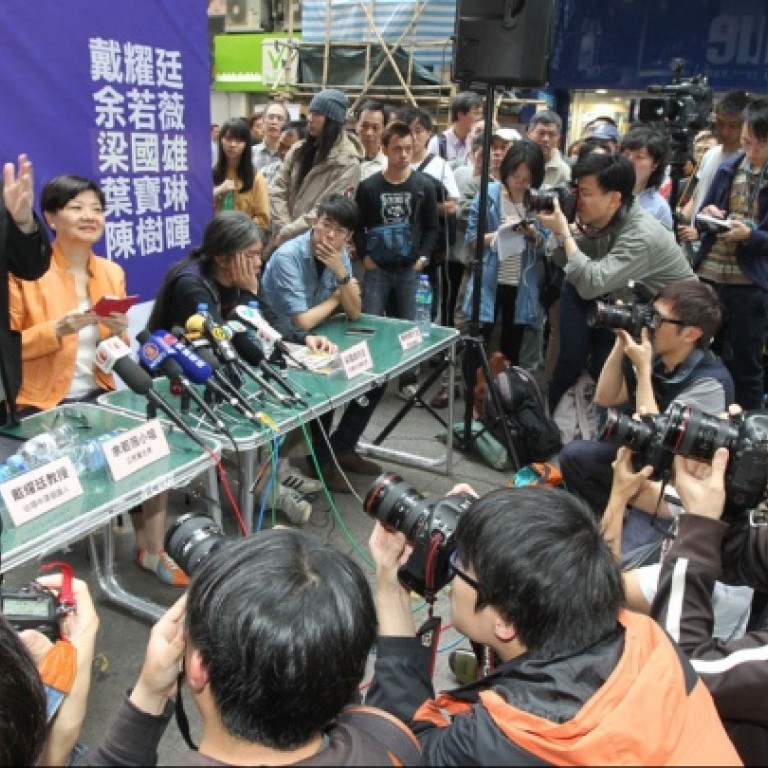
Democracy battle will cost HK$10m, Occupy Central activists figure
Occupy Central movement outlines budget details for its battle for 'genuine' universal suffrage for the 2017 chief executive election
How much would it cost for the city to achieve democracy?
About HK$10 million, according to organisers of a civil disobedience movement to block roads in Central.
But big-money donations are not welcome. The Occupy Central organisers say they will accept only individual contributions of no more than HK$10,000.
The figures were unveiled on the Occupy Central movement's website, which was launched yesterday.
The movement launched by University of Hong Kong law professor Benny Tai Yiu-ting demands "genuine" universal suffrage for the 2017 chief executive election.
"If the government gives a proposal that offers genuine universal suffrage, there will be no need for occupation or such a large sum of money," said the Reverend Chu Yiu-ming, one of the movement's three core organisers. "But recent developments show it is very likely that we have to carry on.
"We do not want to see wild guesses that we are accepting support from foreign powers."
Occupy Central will involve at least four steps, beginning with participants taking an oath of non-violence and agreeing to surrender to police after the event.
The oath will include a clause stating that if a member engages in violent behaviour he or she will not be considered part of the movement.
That will be followed by three "days of deliberation" for them to engage in in-depth discussions about the plan and proposals for electoral reform.
A citywide ballot is next. If the government fails to respond to its outcome, a campaign of civil disobedience in Central will begin.
The first day of deliberation, expected to involve hundreds of members, will come on June 9 and will set the agenda of the movement.
The last, to be held next year, is expected to involve more than 10,000 people.
Chu said the money would fund preparations for the days of deliberation and the ballot, expected by the middle of next year. It includes the costs of publicity and renting venues, as well as at least 10 crews to film and broadcast the discussions live.
"Our goal is that anyone with a smartphone, radio or computer can share the real-time experience of the discussions," he said.
Chu said the movement would be registered under the Companies Ordinance soon in order to accept donations.
